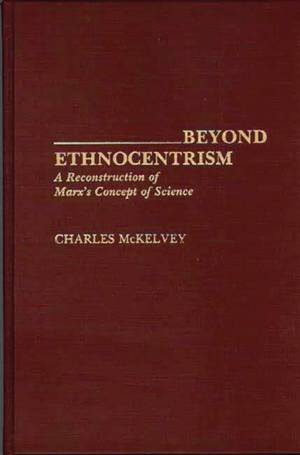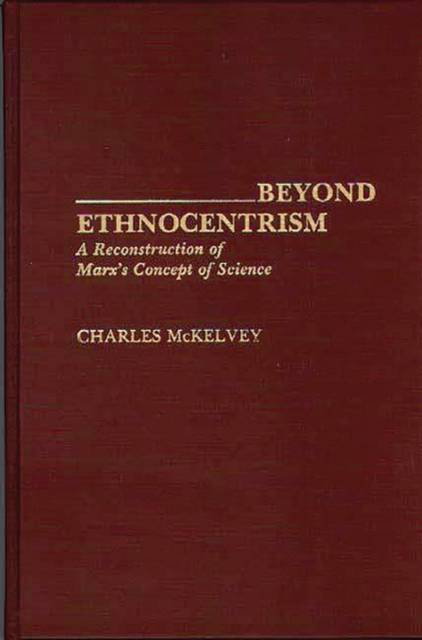
- Afhalen na 1 uur in een winkel met voorraad
- Gratis thuislevering in België vanaf € 30
- Ruim aanbod met 7 miljoen producten
- Afhalen na 1 uur in een winkel met voorraad
- Gratis thuislevering in België vanaf € 30
- Ruim aanbod met 7 miljoen producten
Omschrijving
In this time of great upheaval in Eastern Europe and the Soviet Union, Karl Marx's relevance to contemporary social science may seem remote. However, this important study by Charles McKelvey shows just the opposite: Marx's concept of science can help social scientists gain a greater understanding of today's world society. Western ethnocentrism has, McKelvey argues, isolated the Euro-American social scientist from a true picture of conditions in the Third World. Modern sociology must rethink itself, McKelvey believes, in light of Marxian concepts, Immanuel Wallerstein's world systems perspective, and the cognitional theory of philosopher Bernard Lonergan.
The main purpose of McKelvey's book is to formulate a social scientific method for the attainment of objective knowledge. First, the book examines elements of Marx's work which have been overlooked or misunderstood. Next, McKelvey takes a sociology of knowledge approach and studies Marx's biography in order to grasp the full essence of Marx's concept of science. The book then draws on Lonergan's philosophy to reformulate Marx's concept of science in a manner appropriate for the twentieth century. The final part of the book illustrates Marx's reconstructed concept of science through discussion of theories of Third World underdevelopment. Beyond Ethnocentrism will be of great interest to sociologists, political scientists, historians, and philosophers whose work focuses on Marx or Marxist literature, social science, or Lonergan.Specificaties
Betrokkenen
- Auteur(s):
- Uitgeverij:
Inhoud
- Aantal bladzijden:
- 234
- Taal:
- Engels
- Reeks:
Eigenschappen
- Productcode (EAN):
- 9780313274206
- Verschijningsdatum:
- 28/02/1991
- Uitvoering:
- Hardcover
- Formaat:
- Genaaid
- Afmetingen:
- 156 mm x 248 mm
- Gewicht:
- 526 g

Alleen bij Standaard Boekhandel
Beoordelingen
We publiceren alleen reviews die voldoen aan de voorwaarden voor reviews. Bekijk onze voorwaarden voor reviews.











